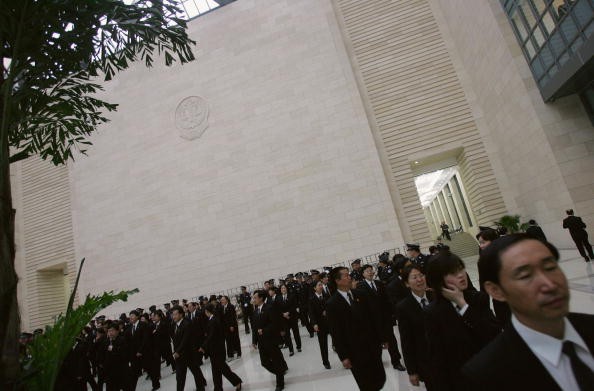China is eyeing reform in the judiciary by opening it to private law practitioners and scholars, though there is doubt that the system is not independent enough to pursue such changes.
A report from the South China Morning Post brought to light the recently revealed plans of the Chinese government to seek help from experienced lawyers in the private sector to help in reforming the judicial system in the country.
However, some observers, particularly veterans, see the move as moot and expect it to fail, like what happened to similar actions revealed in the past few years.
Recruiting from the Private Sector
According to the report citing an online document, the Chinese government ordered the Central Political and Legal Affairs Commission and other judicial authorities in all levels all over China to conduct a formal recruitment activity for private law practitioners.
Chinese authorities are seeking experienced law drafters, judges and prosecutors to be added to the roster of employees and professionals in the judiciary.
To qualify, a legal scholar or attorney must be a member of the Communist Party of China (CPC) and should have proven experience in researching and practicing law for at least five years.
The recruits should also have a clean slate, good reputation, and a pleasing character that upholds fairness and openness in the judiciary.
According to SCMP, the move is included in a new scheme launched in March which aims to usher "a year of critical judicial reform" by enhancing the Supreme People's Court and the Supreme People's Procuratorate with experienced lawyers and scholars with fresh ideas.
Doubts
While the idea of change in the judicial system of China can be quite tempting, many are still unconvinced that the government can pull it off.
In fact, veteran lawyers like Wang Cailiang, who holds the deputy director position in the All China Lawyers Association's administrative law committee, believes that while it was indeed "a positive step" for the system, real change could not be achieved at this point in time.
According to Wang, there was no clear position or task indicated in the document which would allow privately practicing lawyers to assess the opportunity.
"The document does not spell out how private lawyers or legal academics will be officially ranked and remunerated once they are hired by a system that would convert them into civil servants," he said.
Aside from that, renowned lawyer Si Weijiang believes that private lawyers might have a difficult time coping with the new environment where judges were raised to come to a decision after a group deliberation.
"Those with a real commitment to serve as judges would want to rule independently but it is impossible in reality," Si explained.
Similar moves were made in the previous years, like that in 2015 where the Central Politics and Law Committee proposed to conduct a symposium where private law experts could gather and provide their input to the government, per a report from Today Online.



























